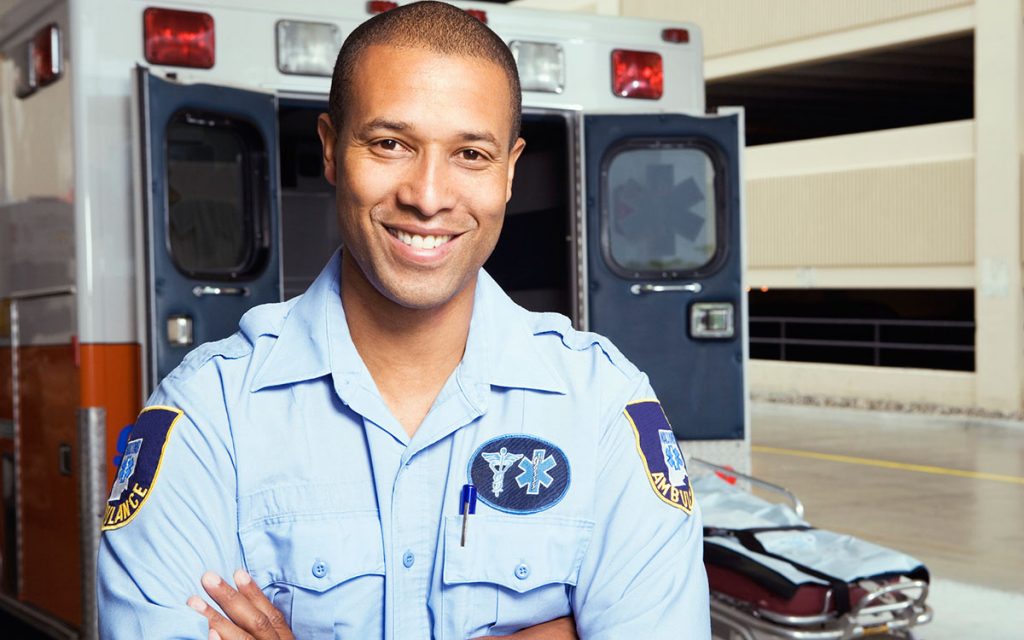Imagine being an EMT and trying to assess someone’s condition in an emergency. It’s a chaotic situation, but you’ve been trained for this. You can take a pulse, do a quick exam–but you also rely on information from the scene. You need to hear victims as you help them into the back of your ambulance.
Now imagine you’re that same EMT, but suddenly you can’t hear very well. The woman you’re assisting into your ambulance is saying something, but you can’t quite make it out. She seems to think it’s important, though.
This is an unnerving thought. But it’s not terribly surprising. Chaos is usually very loud, and if you’re driving in a vehicle with a siren, you’re exposed to extremely loud noise frequently. First responders may have robust courage, but they can still succumb to the limits of their human physiology. What can be startling, though, is that some surveys have found that up to half of all first responders suffer from some form of hearing loss.
The statistics behind first responders and hearing loss
First responders, from emergency medical technicians to firefighters to law enforcement officers, often work in loud, challenging environments, often unaware of the risks these environments pose to their hearing. To discover that over half of first responders have some form of hearing loss is, unfortunately, not especially surprising.
Several studies have surveyed groups of first responders about their hearing loss and revealed some pretty staggering findings. These studies found that:
- 52% of law enforcement officers surveyed reported a diagnosed hearing problem.
- 38% of firefighters reported having mild to moderate hearing loss; severe hearing loss affected as many as 14% of firefighters.
- For firefighters, the severity of their hearing loss tends to increase over time, in proportion to their years of service.
The average incidence of hearing loss in all workers is something like 12%, so you can see how the numbers among first responders represent a significant increase. It’s fairly reasonable, then, to conclude that the source of higher hearing loss among first responders is, at least in part, tied to the occupation itself.
Why are first responders at risk for hearing loss?
Often, we think it’s pretty clear which occupations place your ears at risk and which ones don’t. Working on jet engines or in a loud factory? Risky for your ears. Sitting in a squad car all day? That seems like it’s less stressful on your hearing.
But even moderate sounds–such as freeway noise–can damage your ears if those noises are sustained for a long enough duration. And that helps explain, in part, why first responders are at risk for hearing loss. We have all experienced the shrieking of sirens as first responders pass us on the street. Imagine hearing that for sustained periods on a regular basis.
Noisy environments
The working environments of first responders might not be jet-engine loud, but they’re loud enough. Beeping medical equipment, the roar of diesel engines, the wail of a siren–everything adds up, even road noise. Even though certain training requires ear protection (for example, law enforcement officers are required to wear hearing protection during firearms training), the vast majority of first responder duties do not have any such legal requirements.
Some also feel there’s a stigma
Hearing is important if you’re a first responder. You need to be able to assess a situation, communicate with witnesses and individuals in distress, and maintain complete situational awareness. A compromise in your hearing can mean diminishing job performance.
And that’s why some first responders are reluctant to report signs of hearing loss. They’re worried about slowing the progress of their careers or the possibility that they’ll somehow be sidelined because of hearing loss.
Prioritizing the hearing of first responders
These studies give us the opportunity to acknowledge that the hearing of first responders is important. And that means we have an obligation to do more to protect that hearing. Education, training, and administrative improvements can often go a long way towards ensuring that hearing protections are seriously adopted.
But outcomes could also be improved with some cultural shifts. Too many law enforcement officers and firefighters, for example, are hesitant to seek treatment for their hearing problems (which only guarantees those problems will get worse).
If you’re a first responder, the more work you do to protect and preserve your hearing, the longer you’ll be able to serve your community and help those around you. Ear protection can keep you a first responder longer–and that can make all of our communities safer.


